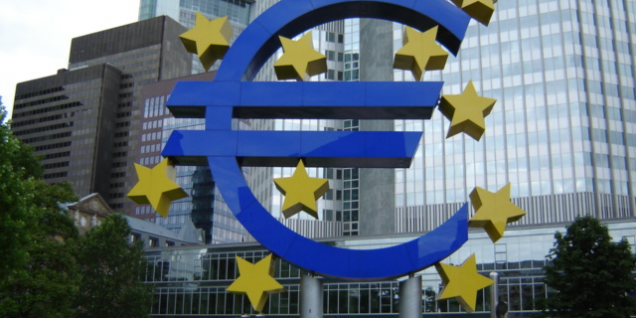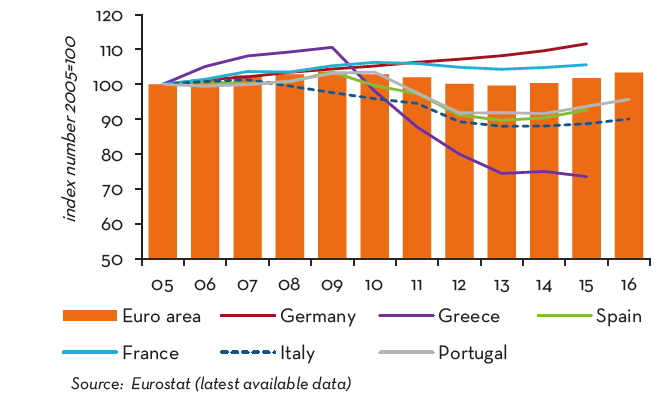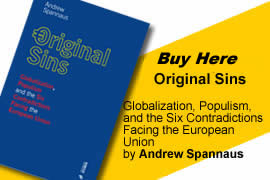Poverty levels in Italy remain significant, but essentially unchanged in recent years, after the rapid rise starting 2010 following the international financial crisis and the Euro crisis in particular. In its “Discussion Note” for September 2017, the Prometeia research association stresses that in Italy the categories “at risk of poverty” and “working poor” are above the European average, and have shown no improvement since 2014, despite the start of government measures aimed to provide support for low and medium incomes.
The increase of people at risk of poverty was limited in percentage terms (a single percentage point between 2007 and 2014 for Europe on the whole), while the growth of the working poor has been more significant: 1.5% on average in Europe, and more than 2% in Italy from 2007 to 2015. The most pronounced effects have been seen on disposable income, as evident in the chart below.
It’s impossible not to notice the difference between the “southern” countries – Portugal, Italy, Greece, and Spain, previously referred to derogatorily as the PIGS – and the central European countries of Germany and France. The first group are the ones who suffered the most from the Euro crisis, and were forced to impose harsh austerity programs for years. It is telling that the negative effects of the “cure” dictated by the Troika (European Commission, ECB and IMF) persist, meaning that even when recovery kicks in, those economies are starting from further behind; it will take a long time to recover the loss of savings, income and also welfare services suffered between 2010 and 2014.
Prometeia’s Discussion Note is concentrated on the new welfare measures aimed at guaranteeing minimum income for the poor (REI), that will take effect in Italy in 2018; other countries in Europe have already implemented similar programs. The analysts expect only a minimal impact from the new measures though, given budget constraints that do not allow for significant new spending, and the narrow definition of who is poor, that would need to be expanded considerably in order to provide assistance to all of those who need it.
Subscribe to access all news items








October 6, 2017
Economia, English, Notizie